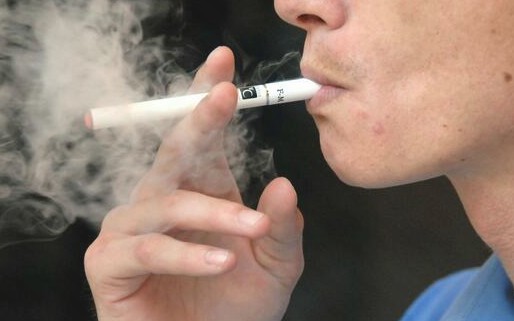Updated with a detailed response from the Australia’s Therapeutic Goods Administration
In what is likely to become a much broader story in Australia than one about airlines, the US Department of Transportation is proposing to ban electronic cigarette smoking on flights.
Electronic cigarettes look like cigarettes, apparently create smoke like cigarettes and use nicotine like cigarettes.

The essential difference is that they don’t burn tobacco in air, they nebulise liquid nicotine using a battery powered heater, and, apparently, confuse if not evade laws against tobacco smoking and the definitions of tobacco smoke free zones.
While they appear to be legal in Victoria, and available on prescription in New Zealand, they have been totally banned in Singapore on the grounds that nicotine no matter how delivered is a poison.
At a time when plain packaging laws for cigarettes in Australia have passed the House of Representatives and are expected to pass the Senate later this month, electronic cigarettes are likely to cause further controversy.

There are already at least two distributors of electronic smoking kits and cartridges making on line sales from Australian domains, and the advertising images and claims could be seen by health authorities as variously being misleading or of concern, as the screen captures taken from the Ecigz site imply that electronic smoking pulls women and the products are described as healthy alternatives to tobacco smoking.
Clarification of the situation in Australia has been sought from CASA, the Transport Department and the Health Minister, Nicola Roxon, but may not be available for some time.
This is the statement issued by the US Department of transportation.
U.S. Transportation Secretary Ray LaHood today announced that the Department of Transportation is proposing to explicitly ban the use of electronic cigarettes on aircraft.
“Airline passengers have rights, and this new rule would enhance passenger comfort and reduce any confusion surrounding the use of electronic cigarettes in flight,” said Secretary LaHood.
A Notice of Proposed Rulemaking (NPRM) in today’s Federal Register would clarify that the airline smoking rule prohibits the use of electronic cigarettes and similar products, as tobacco products are now prohibited. Electronic cigarettes are designed to deliver nicotine or other substances to the smoker in the form of a vapor.
Electronic cigarettes cause potential concern because there is a lack of scientific data and knowledge of the ingredients in electronic cigarettes. The Department views its current regulatory ban on smoking of tobacco products to be sufficiently broad to include the use of electronic cigarettes. The Department is taking this action to eliminate any confusion over whether the Department’s ban includes electronic cigarettes. The proposal would apply to all scheduled flights of U.S. and foreign carriers involving transportation to and from the U.S.
Amtrak has banned the use of electronic smoking devices on trains and in any area where smoking is prohibited. The Air Force Surgeon General issued a memorandum highlighting the safety concerns regarding electronic cigarettes and placed them in the same category as tobacco products. The U.S Navy has banned electronic cigarettes below decks in submarines. Further, several states have taken steps to ban either the sale or use of electronic cigarettes.
This NPRM proposes an explicit ban on the use of electronic cigarettes in all forms, including but not limited to electronic cigars, pipes and devices designed to look like everyday products such as pens. The ban does not include the use of a device such as a nebulizer that delivers a medically beneficial substance to a user in the form of a vapor.
The Department is also considering whether to extend the ban on smoking, including electronic cigarettes, to charter flights of U.S. carriers and foreign air carriers with aircraft that have a designed seating capacity of 19 or more passenger seats.
The rulemaking proposed today is a part of the Department’s broader effort to strengthen airline passenger rights and improve information available to the public.
Update: The Therapeutic Goods Administration has responded with this bulletin, with special reference to potentially harmful ingredients like anti-freeze.
E-cigarettes are prohibited from retail sale in Australia through state and territory legislation.
E-cigarettes are not a therapeutic good nor a safe alternative to normal cigarettes. They have not been approved by the Therapeutic Goods Administration (TGA)
Except in therapeutic preparations (eg nicotine replacement therapies) nicotine is a schedule 7 poison because it is harmful to human health.
There are currently no laws preventing the importation of these products for personal use. Consumers are warned that use of e-cigarettes may pose a danger to health and are encouraged not to purchase these products.
It is important to note that these products have not been registered or approved by the TGA. Therefore the TGA has NOT tested these products or verified what is in them or determined if they even work.
It is very important that consumers understand that when buying unregistered products over the internet that they have no guarantee about the quality or the actual ingredients of the product they are going to inhale or ingest, and that there is no guarantee that these products are safe or effective.
Background
In September 2010, the United States Food and Drug Administration issued warnings to five distributors of e-cigarettes in the USA over unsubstantiated therapuetic claims and poor manufacturing practices. Please have a read of the US-FDA media release of 9 September 2010 on their website at www.fda.gov
Earlier testing done by the US-FDA in mid- 2009 of e-cigarette products found they contained known carncinogens and other toxic chemicals including diethylene glycol which is an ingredient of antifreeze. Ref: FDA media release 22 July 2009.
In addition, The World Health Organization has also expressed serious concern about electronic cigarettes, including that not enough is known about emissions and potential harms. Recent reports are available from:
https://apps.who.int/gb/fctc/E/E_cop4.htm document FCTC/COP/4/12, and
https://www.who.int/tobacco/global_interaction/tobreg/en/ WHO Study Group on Tobacco Product Regulation report on the scientific basis of tobacco product regulation







Crikey is committed to hosting lively discussions. Help us keep the conversation useful, interesting and welcoming. We aim to publish comments quickly in the interest of promoting robust conversation, but we’re a small team and we deploy filters to protect against legal risk. Occasionally your comment may be held up while we review, but we’re working as fast as we can to keep the conversation rolling.
The Crikey comment section is members-only content. Please subscribe to leave a comment.
The Crikey comment section is members-only content. Please login to leave a comment.